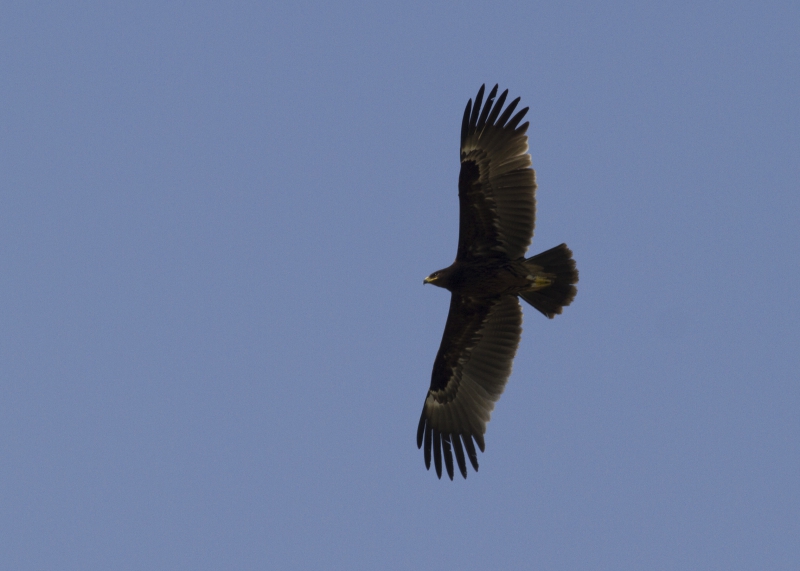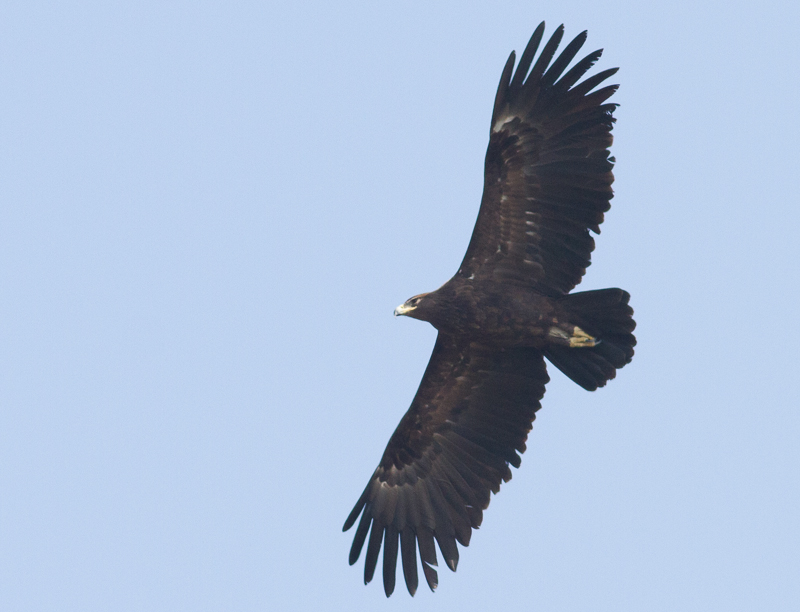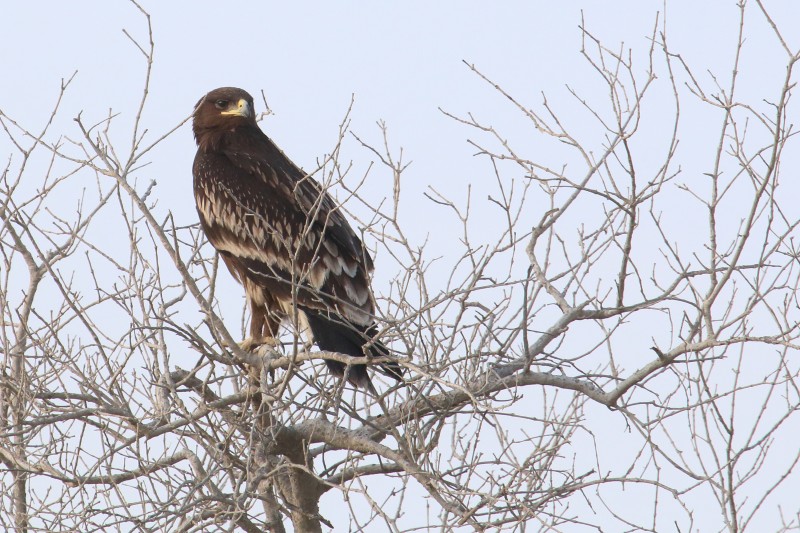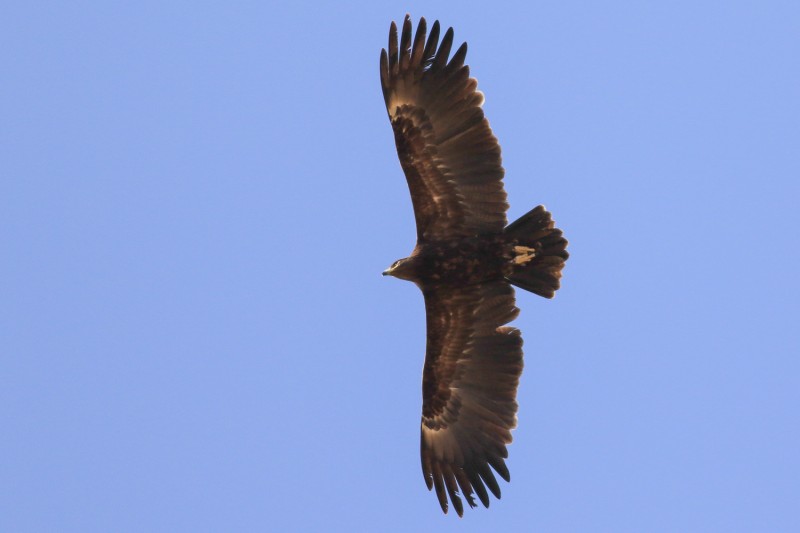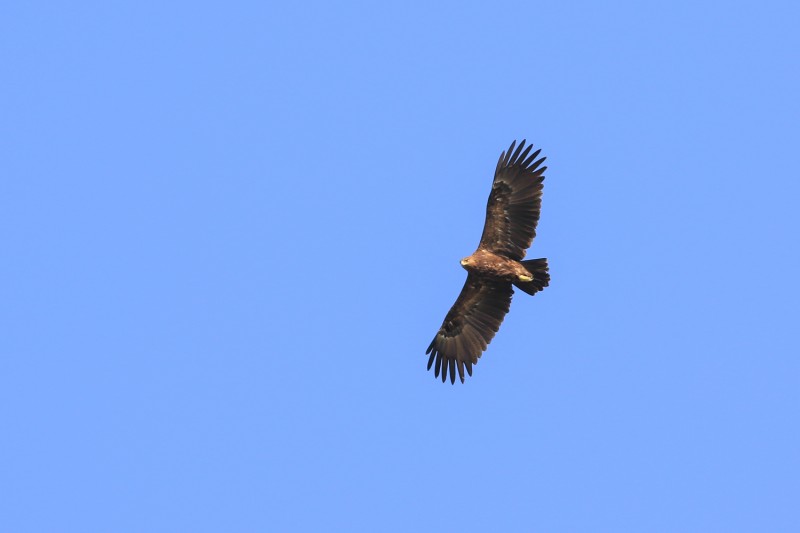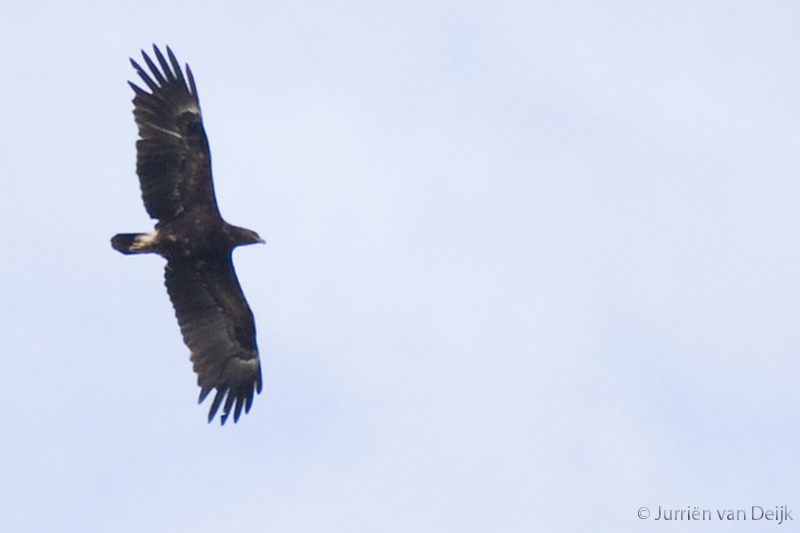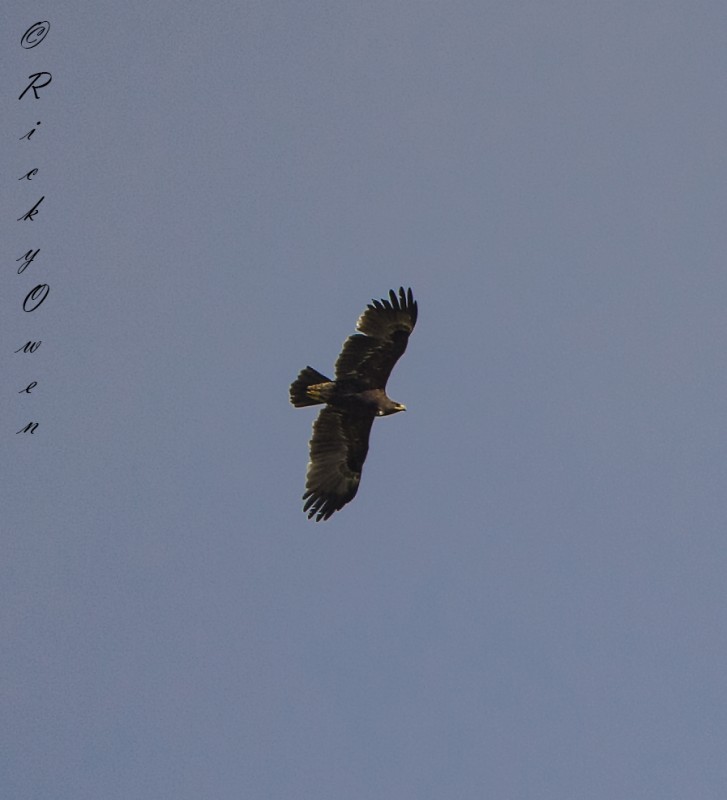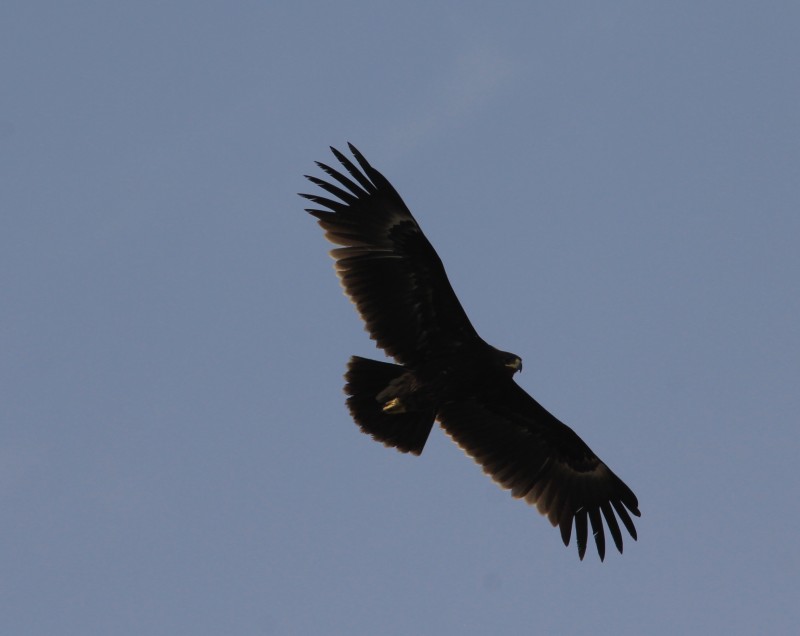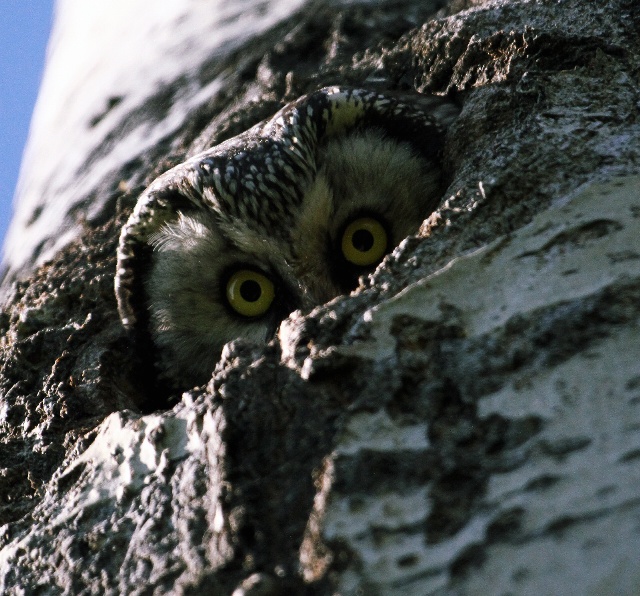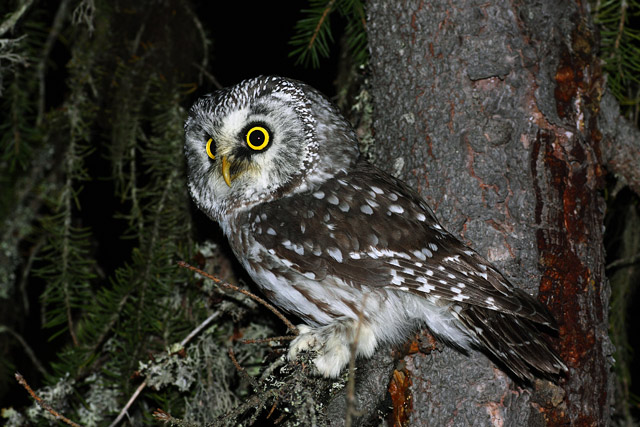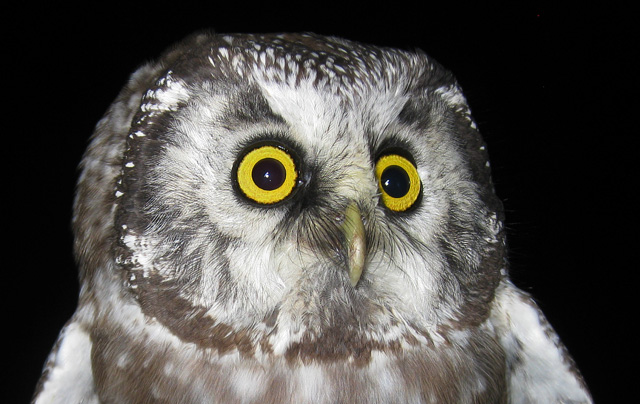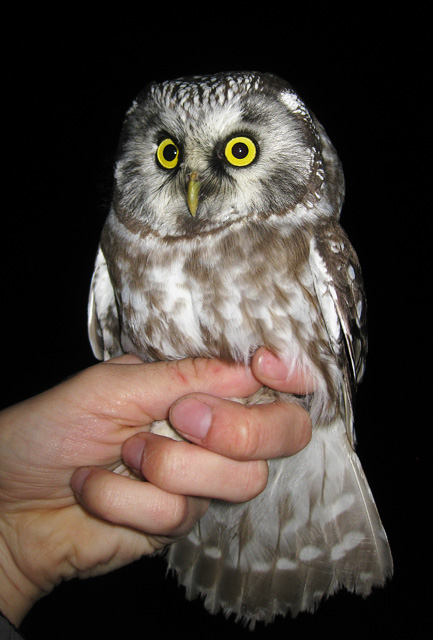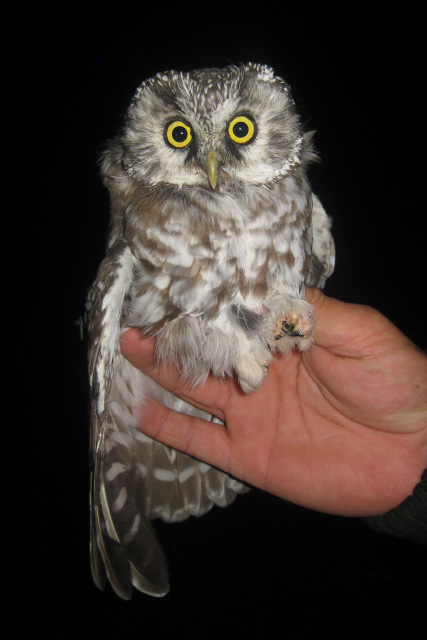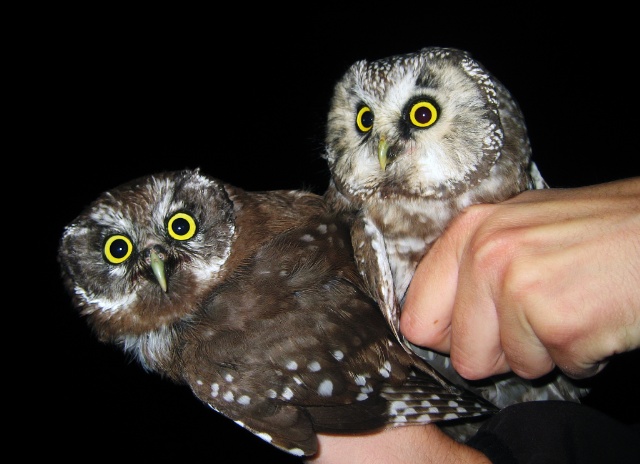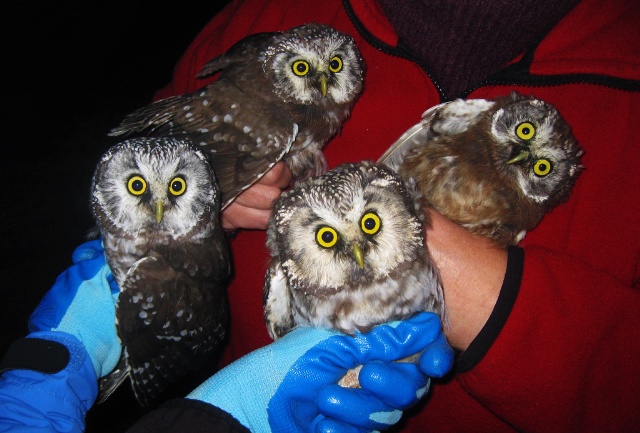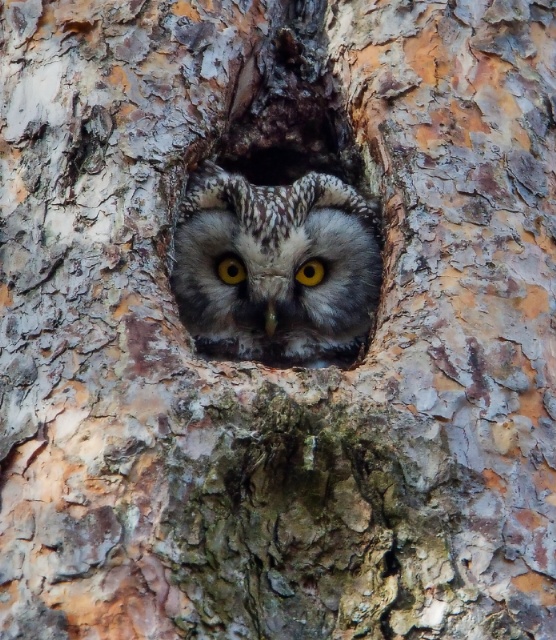Greater Spotted Eagle (Clanga clanga)
Boreal Owl (Aegolius funereus)
Medium sized eagle with long, evenly broad wings and relatively short tail. Easily confused with Lesser Spotted Eagle, Clanga pomarina. Flight feathers usually paler than the dark coverts, and head and body same colour as wings. Only diffuse pale patch at base of primaries on upper wing (marked in C. pomarina). Pale base of primaries shows as "comma", but usually lacks pale base of under primary coverts, contrary to C. pomarina. Broader wings than C. pomarina, and the squarish wing-shape, short neck and tail recalls White-tailed Eagle (H. albicilla). U-shaped white patch at base of tail. Immature birds even darker than adults, and show white spots along upper wing coverts in two narrow bands. Very long "fingers" overall, and elongated 7th primary. Soars and glides on horizontal wings with drooping hand (as C. pomarina). Bill obviously heavier than C. pomarina, and yellow base and gular region stands out. Round nostrils.
Sound:Vocal at breeding ground, and when courting. Short, barking, high-pitched whistles, not unlike a small dog. Slightly lower pitched than C. pomarina and with a fuller tone, but very similar.
Call:
Distribution:
Wikipedia: map (se also Xeno-canto below)
Ecology:Birdlife ecology
Links:
Observation.org Latest observations
Image search Flickr NB! May give other species
CCCC-sound:David Farrow, Licence,Link.
CC-photo:Ronald Bontrop, Licence,Link.
CC-photo:Paul Schrijvershof, Licence,Link.
CC-photo:CharlesLam, Licence,Link.
Small owl with large, square head and spotted upperparts. Eyes bright yellow and facial disks white. "Astonished" expression. Size approximates that of Little Owl, but appears more bulky. Head much larger than in Pygmy Owl, and flight pattern includes interspersed glides without bounding. Seldom seen in the open.
Sound:Song consists of fast series of fairly deep whistling notes "po-po-po-po-po-po-po-po", slightly ascending in pitch, and descending in the last few syllables. Phrase includes up to 25 units. Other calls include a drawn-out, squeaky "kweeat" and some peculiar, explosive sounds with an almost "electronic" quality.
Song:
Distribution:
Wikipedia: map (se also Xeno-canto below)
Ecology:Birdlife ecology
Links:
Observation.org Latest observations
Image search Flickr NB! May give other species
CC
 English
English Albanian
Albanian
 Armenian
Armenian
 Bulgarian
Bulgarian
 Catalan
Catalan
 Croatian
Croatian
 Czech
Czech
 Danish
Danish
 Dutch
Dutch
 Finnish
Finnish
 French
French
 Georgian
Georgian
 German
German
 Greek
Greek
 Hungarian
Hungarian
 Italian
Italian
 Latvian
Latvian
 Lithuanian
Lithuanian
 Macedonian
Macedonian
 Norwegian
Norwegian
 Polish
Polish
 Portuguese
Portuguese
 Romanian
Romanian
 Russian
Russian
 Sami : Lule sami
Sami : Lule sami
 Sami : North sami
Sami : North sami
 Sami : South sami
Sami : South sami
 Scientific names
Scientific names
 Serbian
Serbian
 Spanish
Spanish
 Swedish
Swedish
 Ukrainian
Ukrainian


